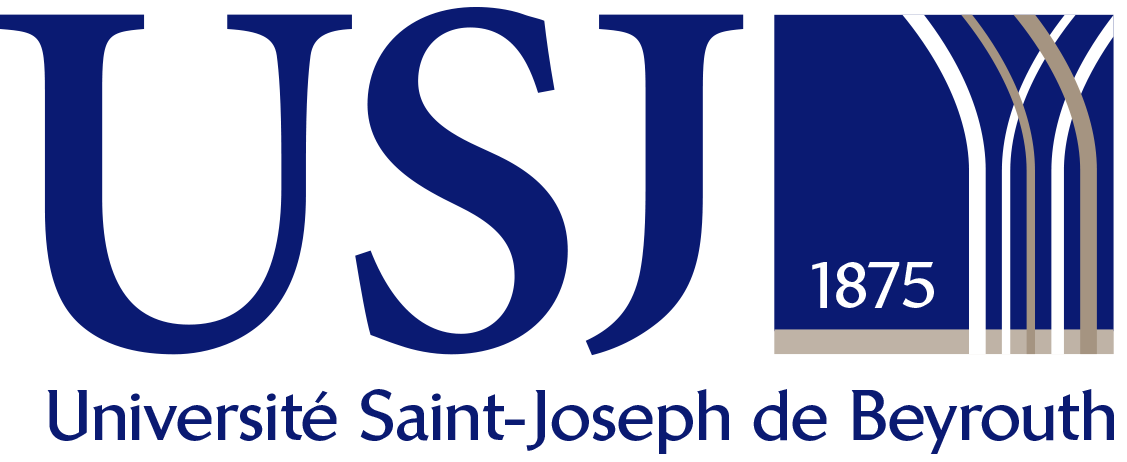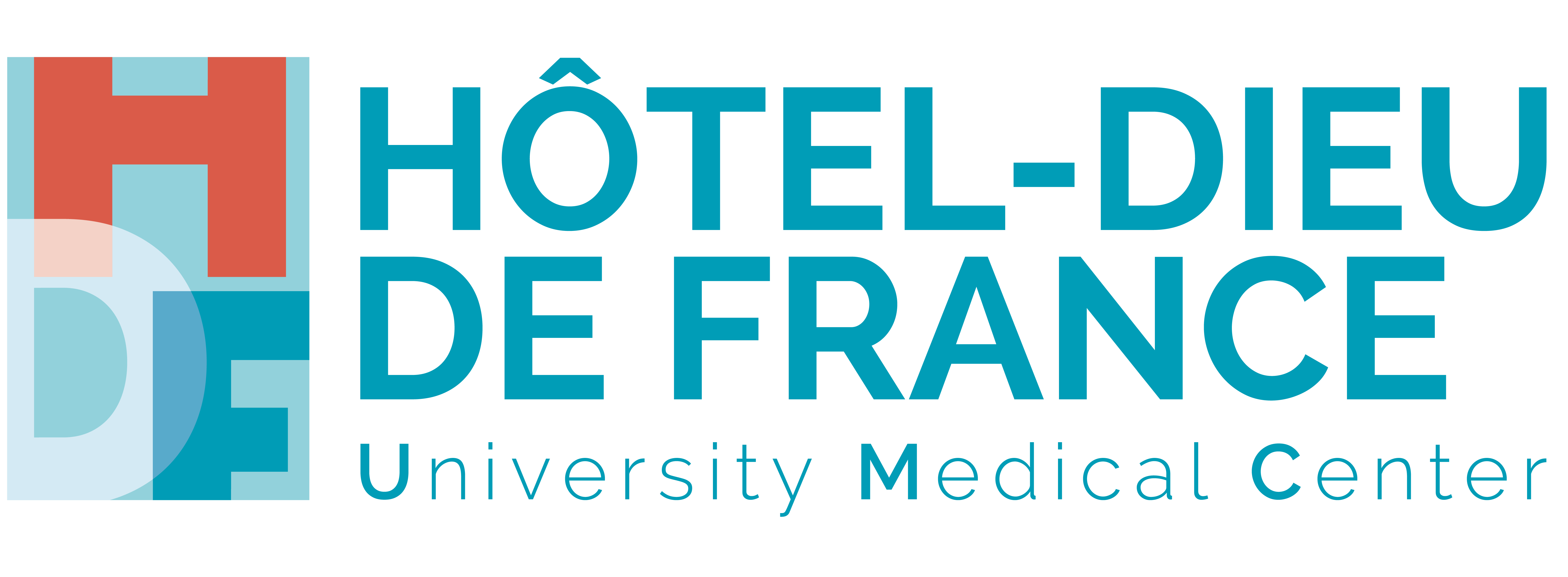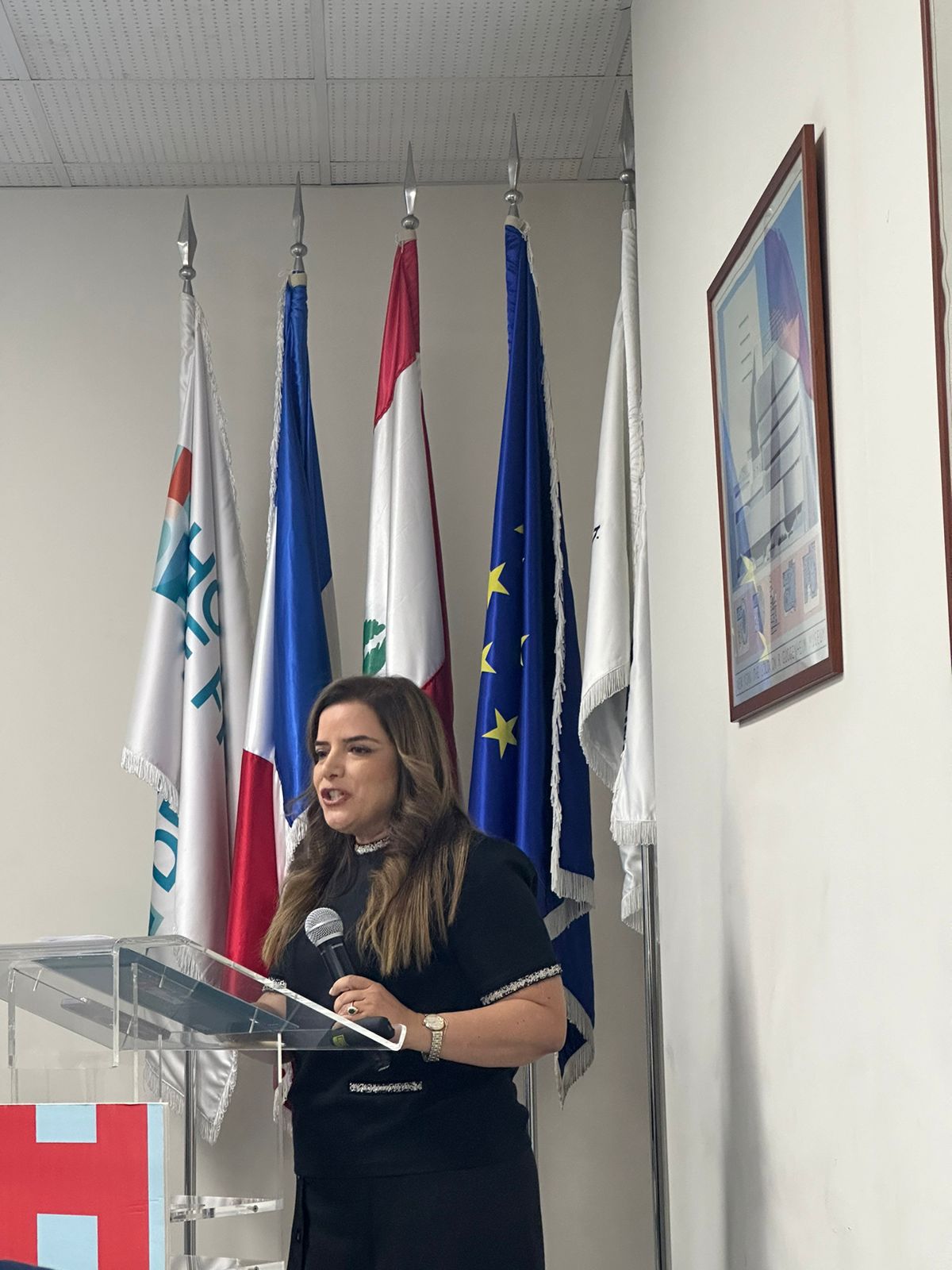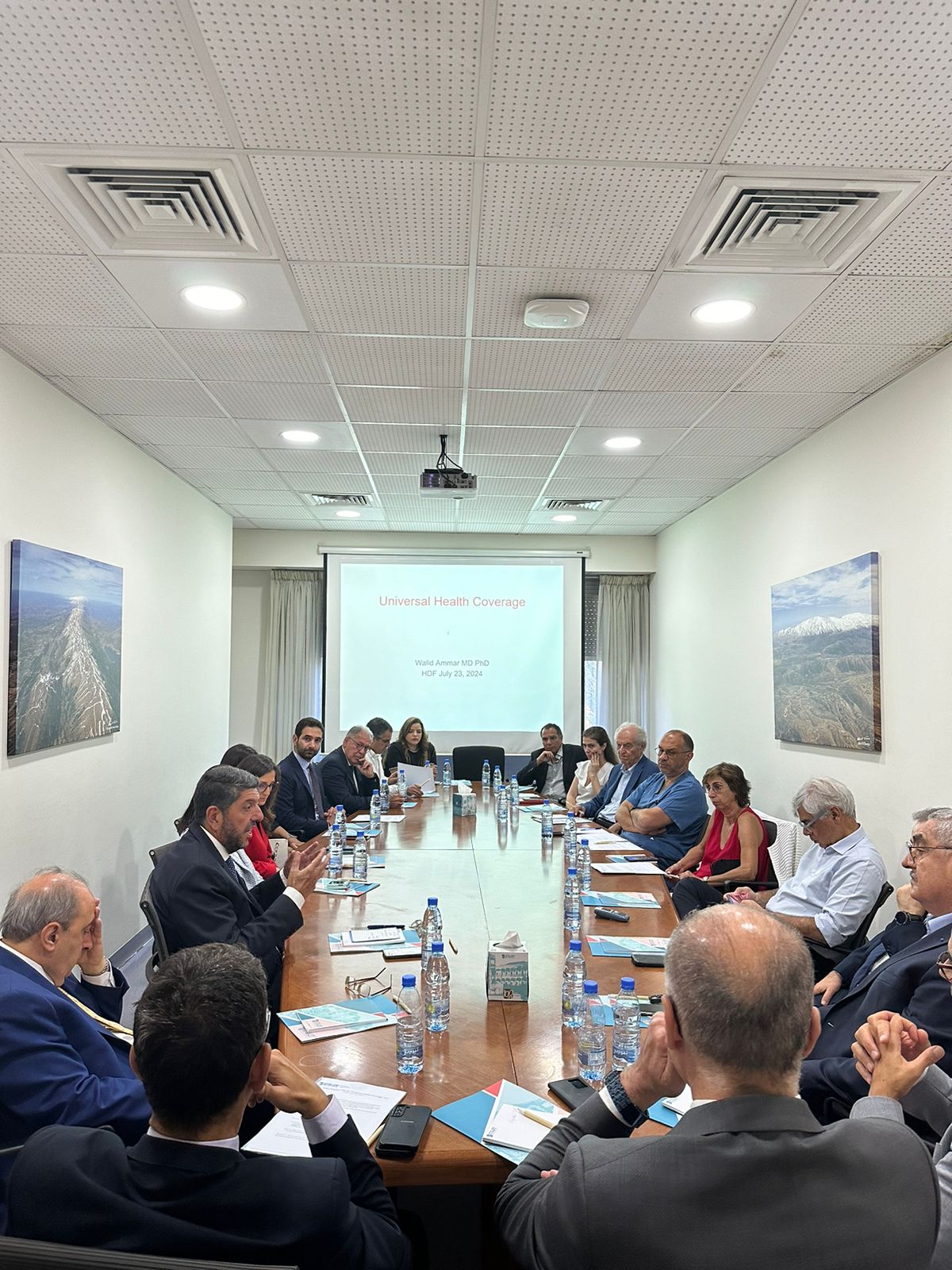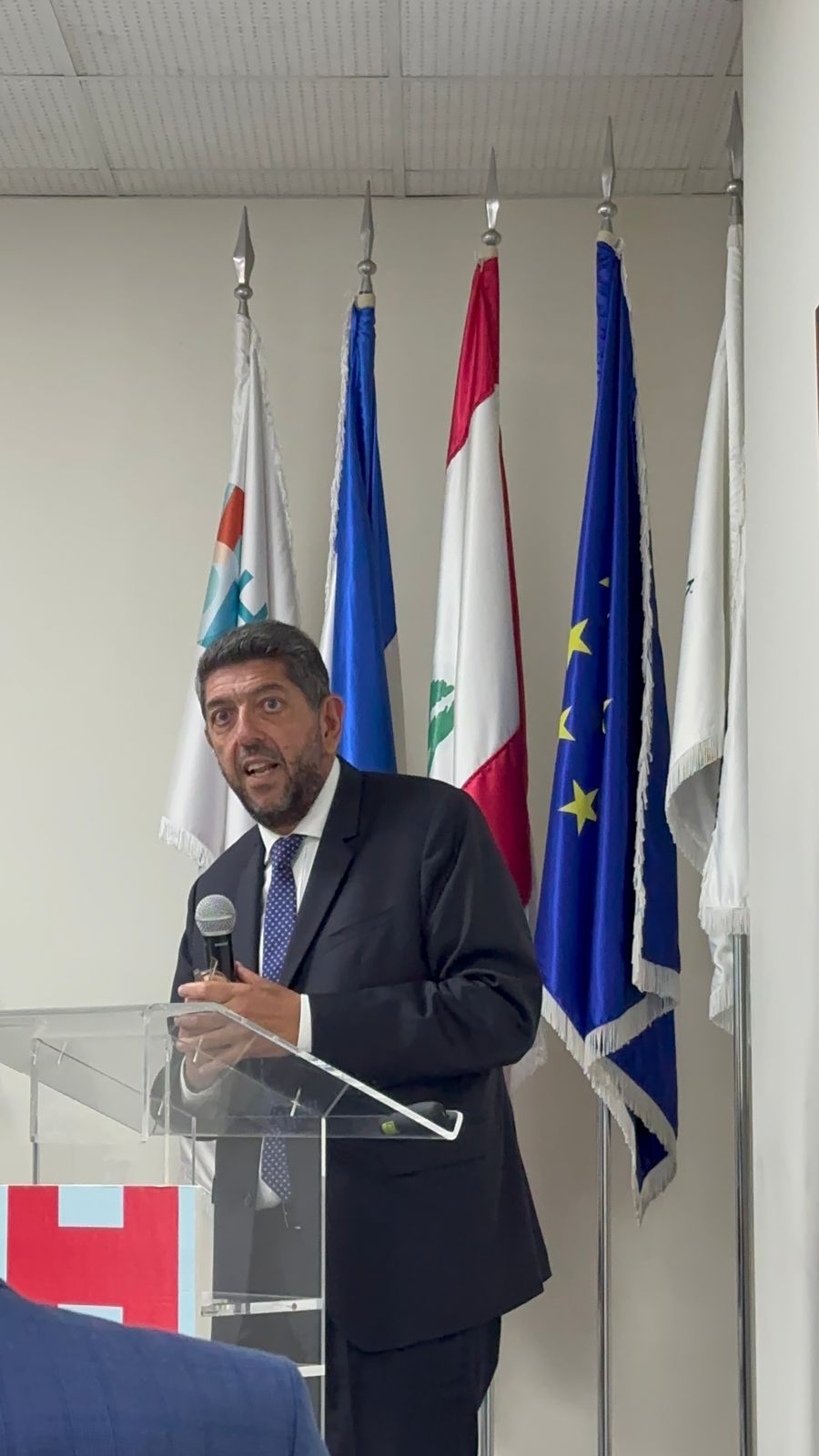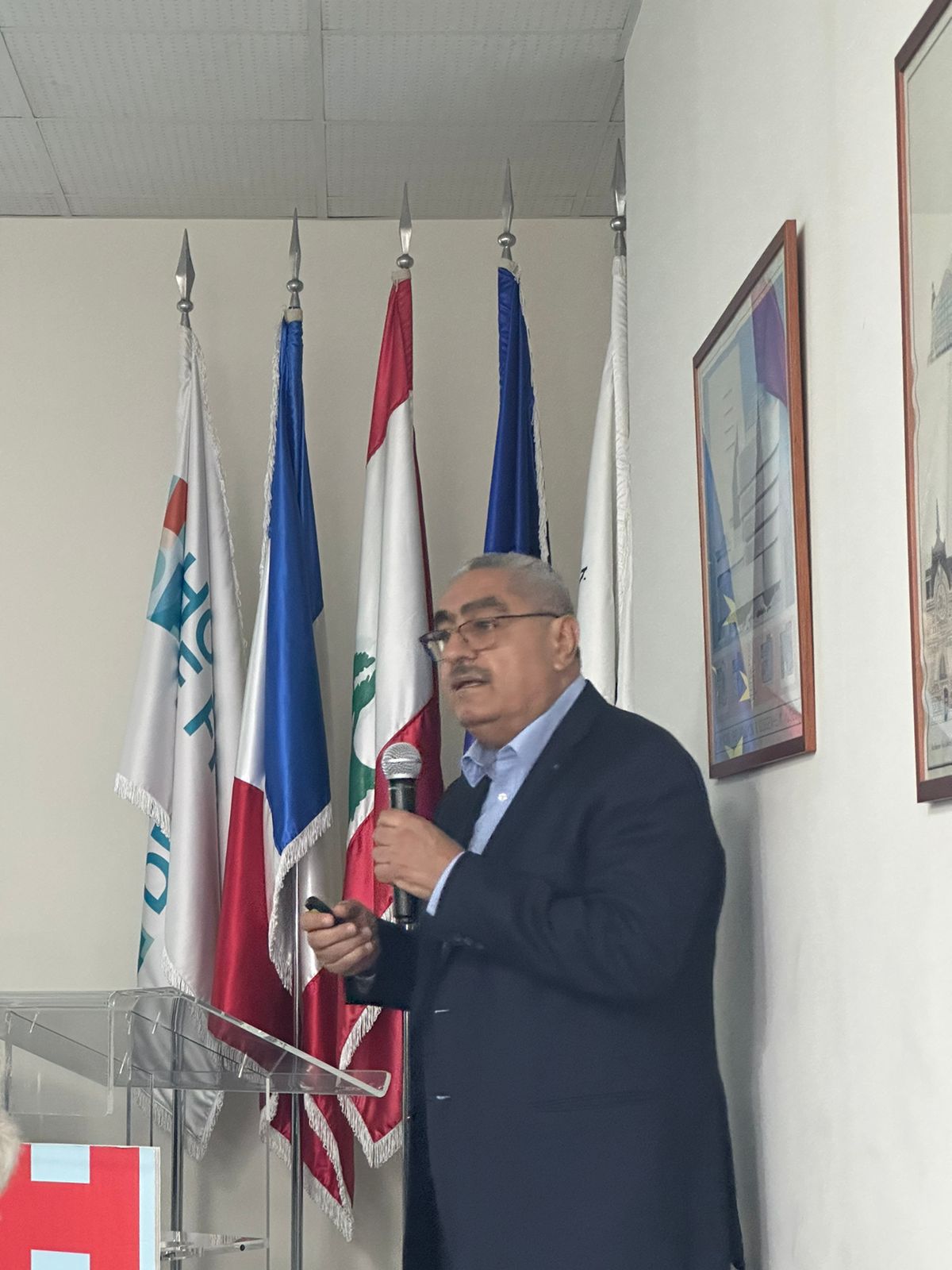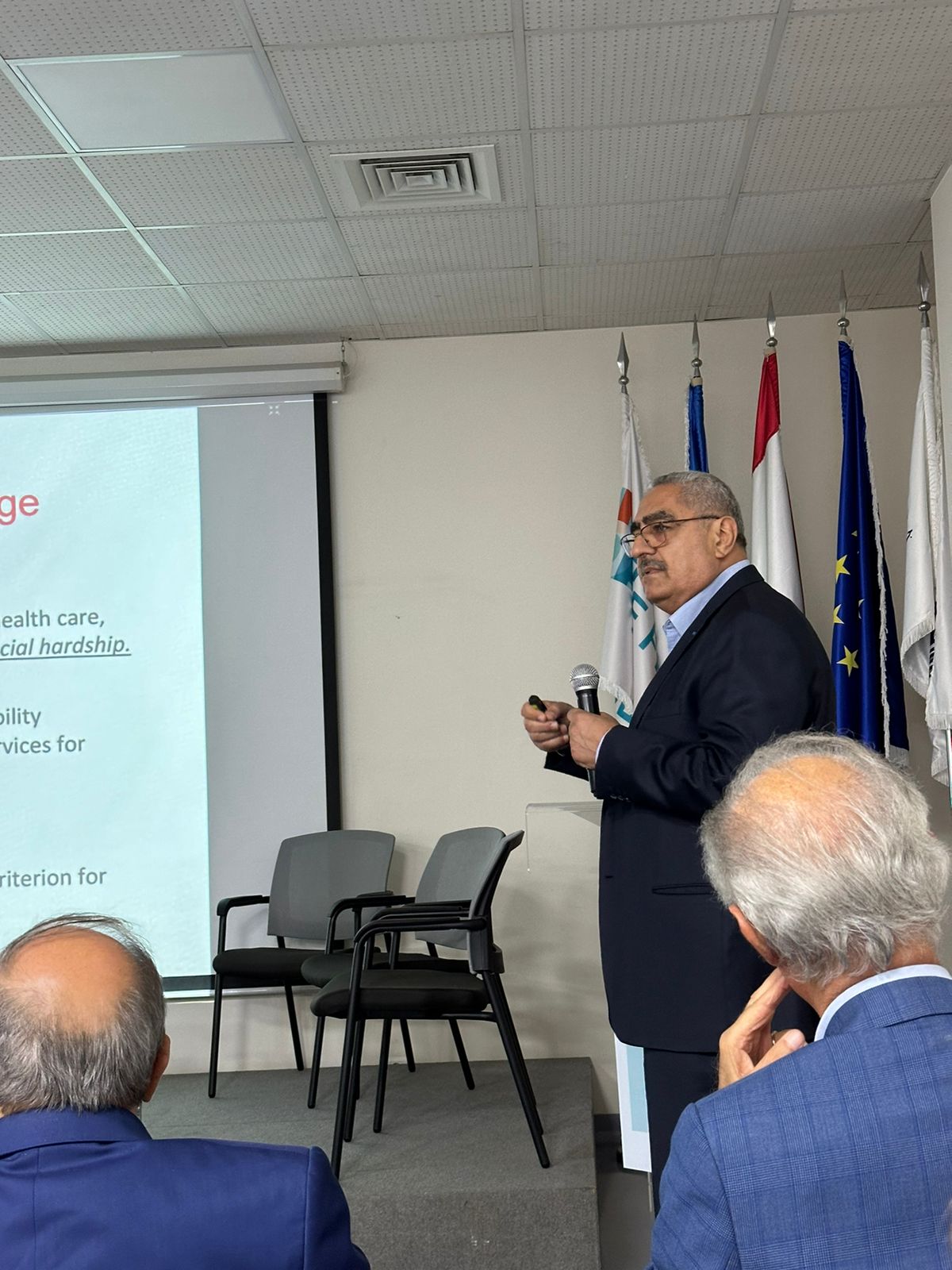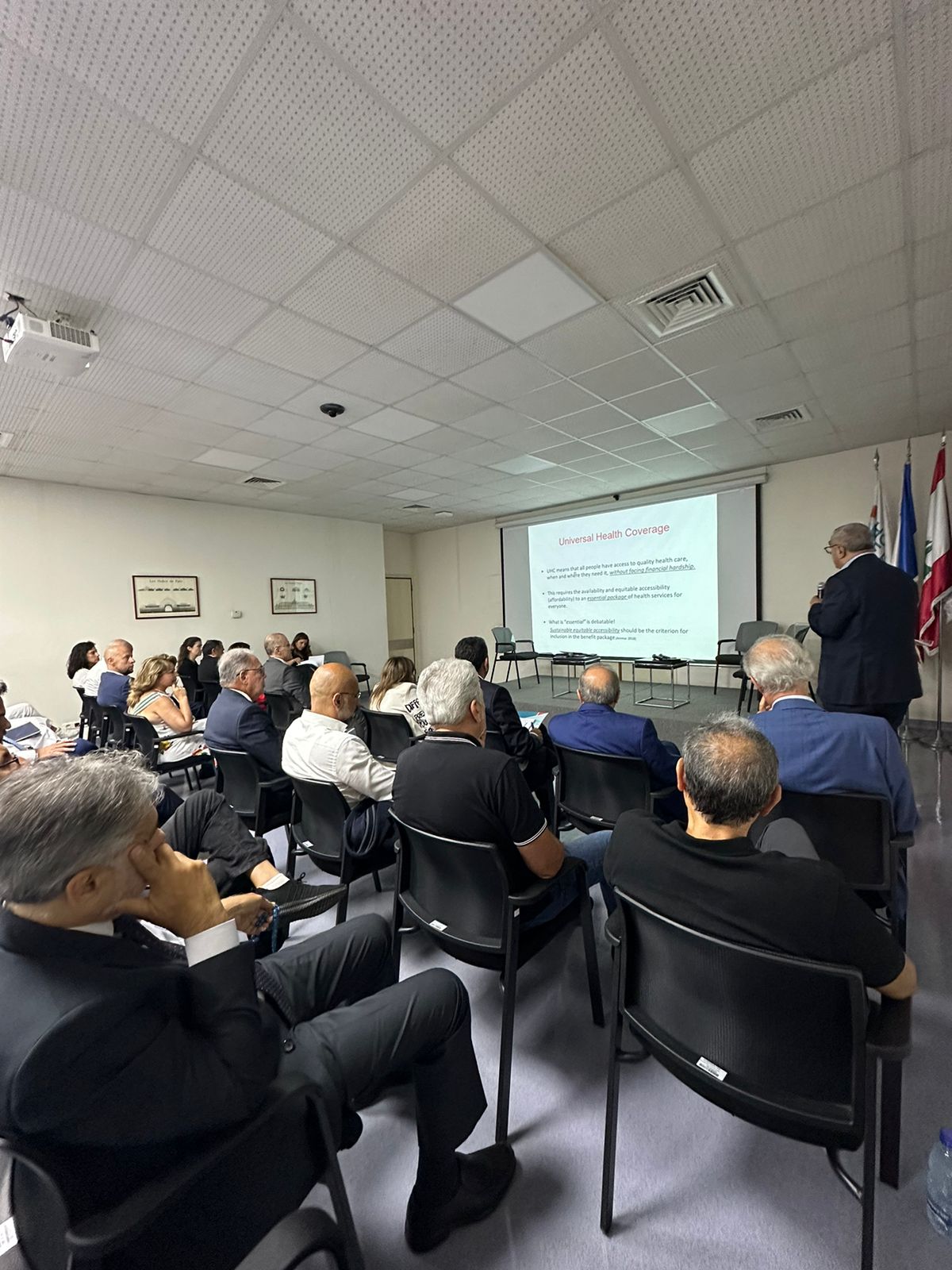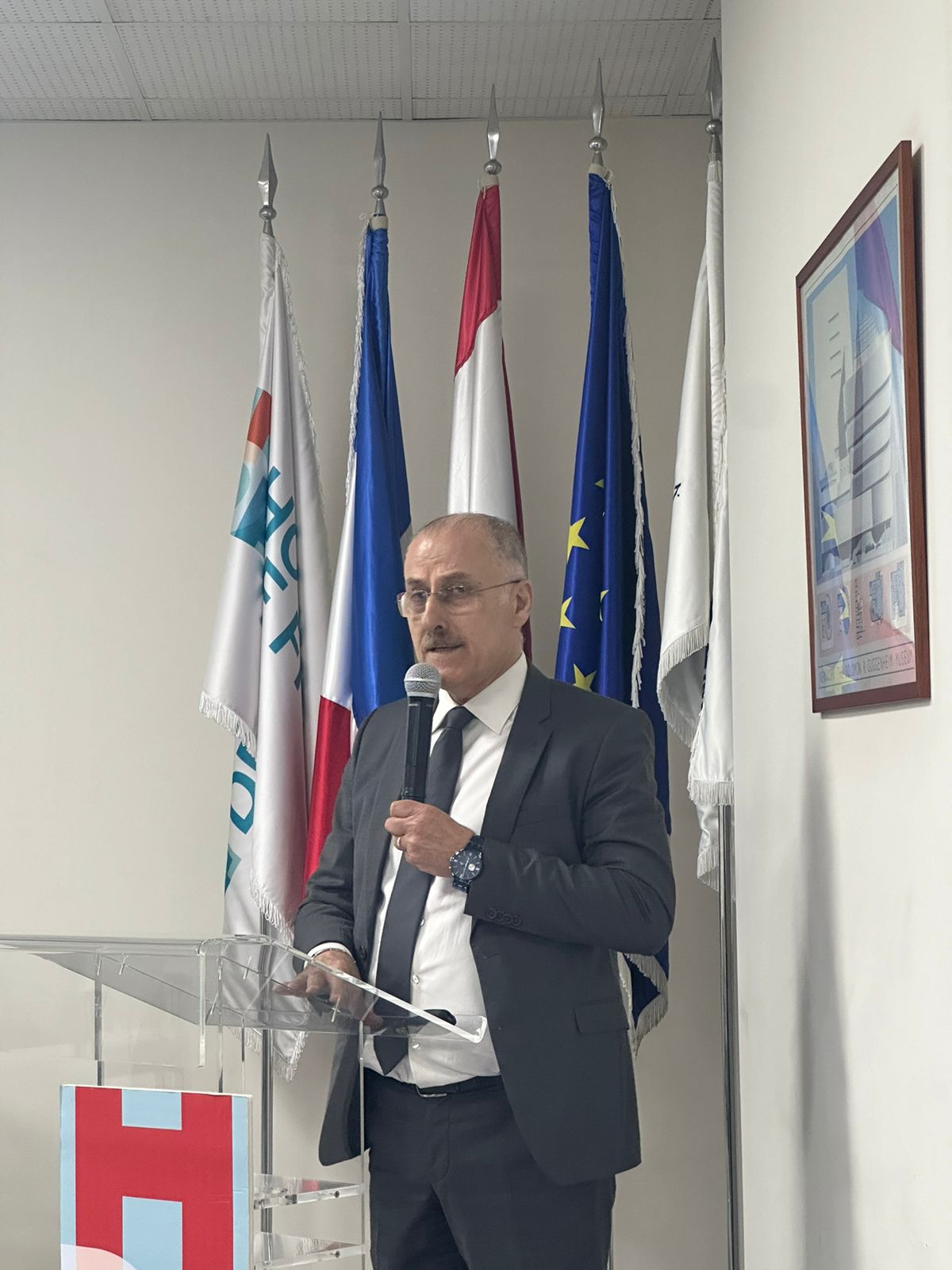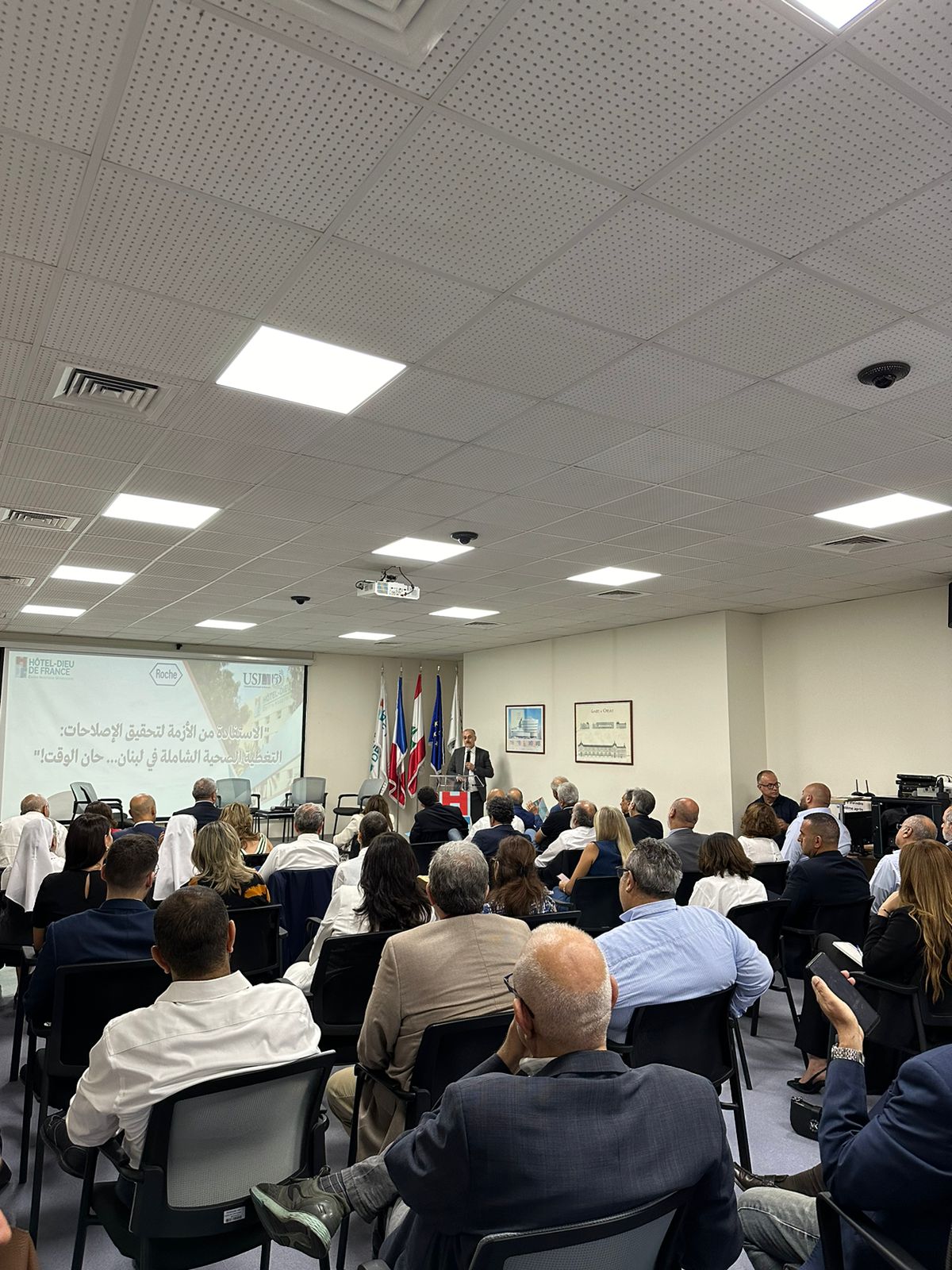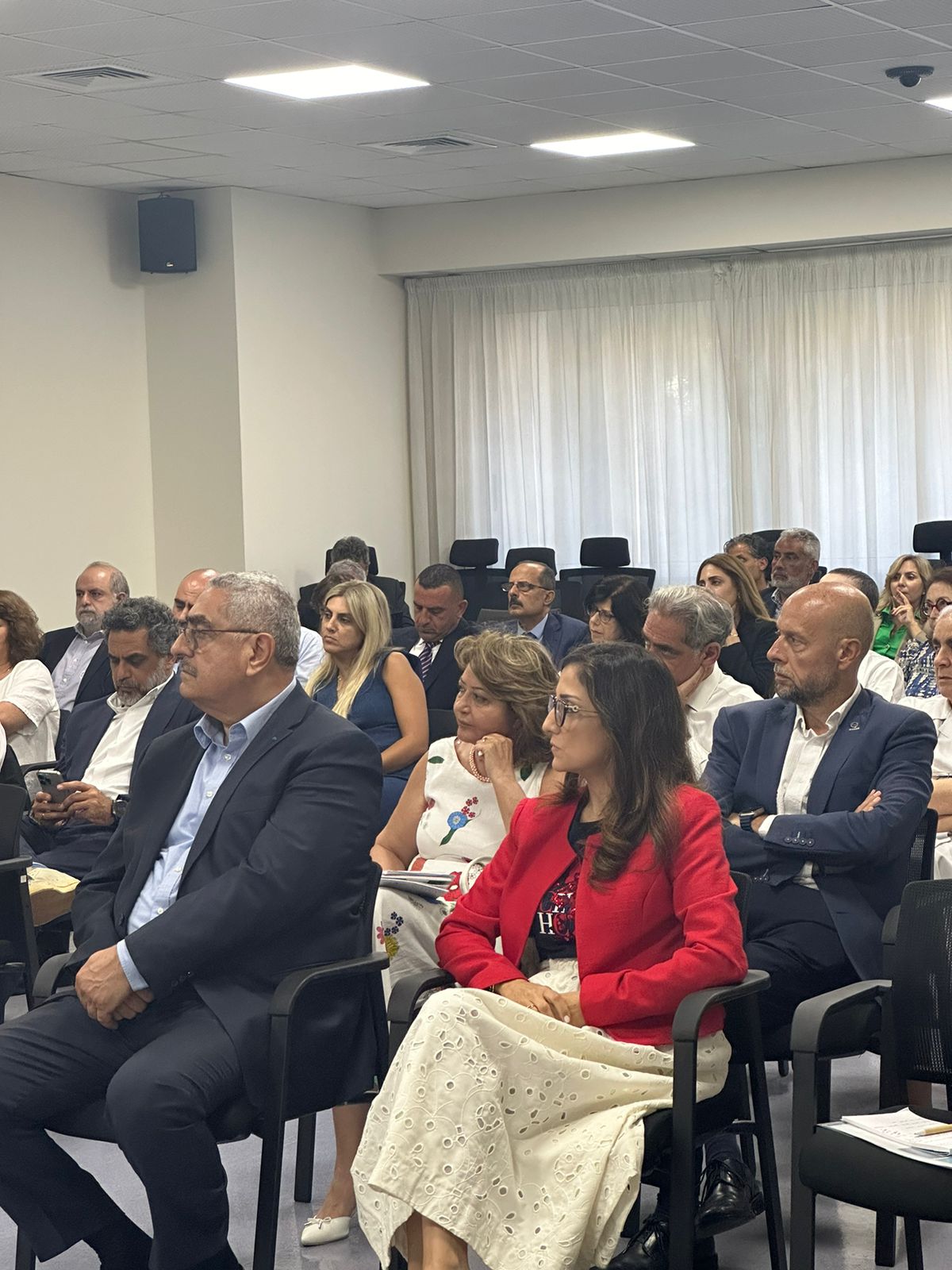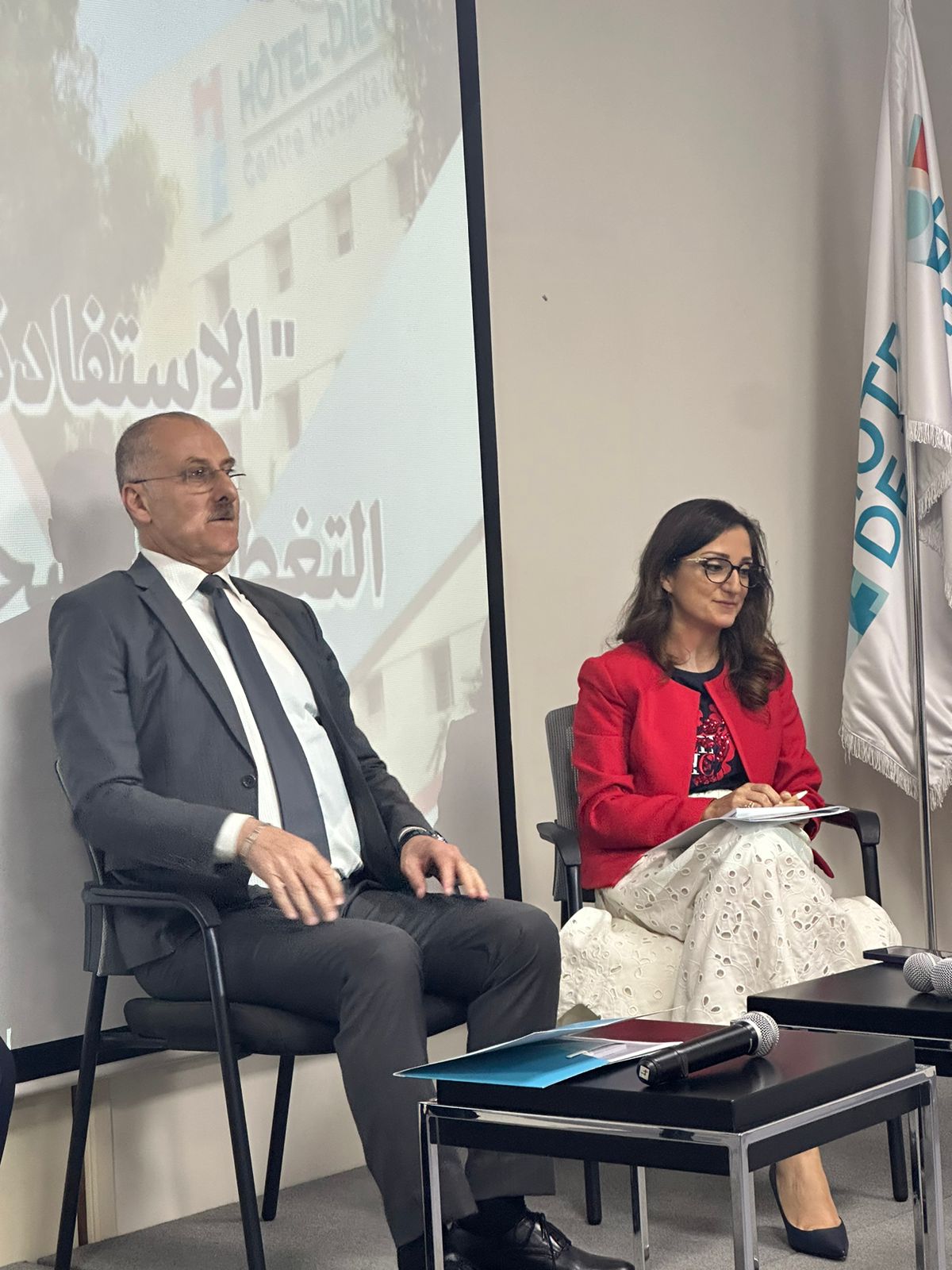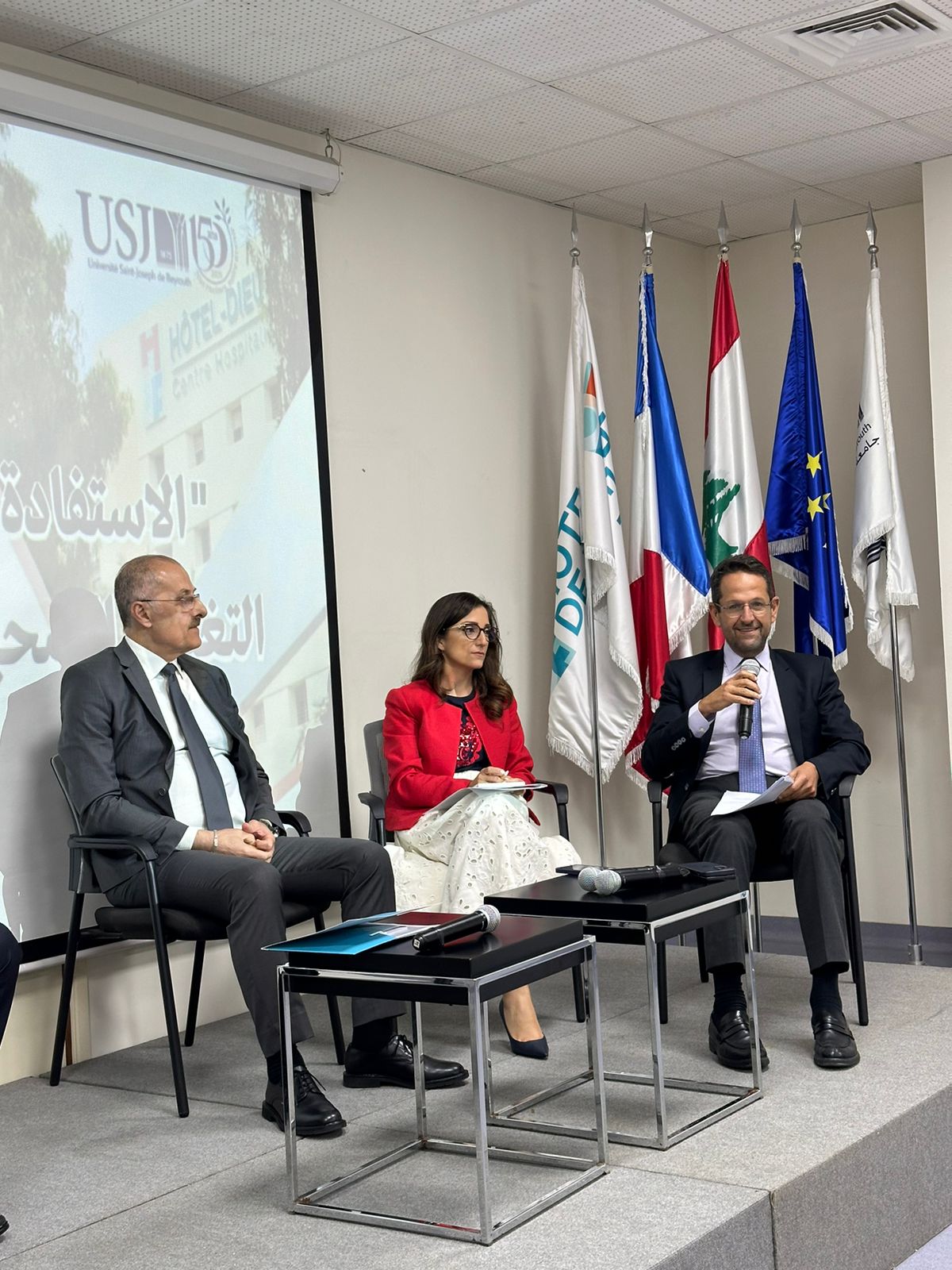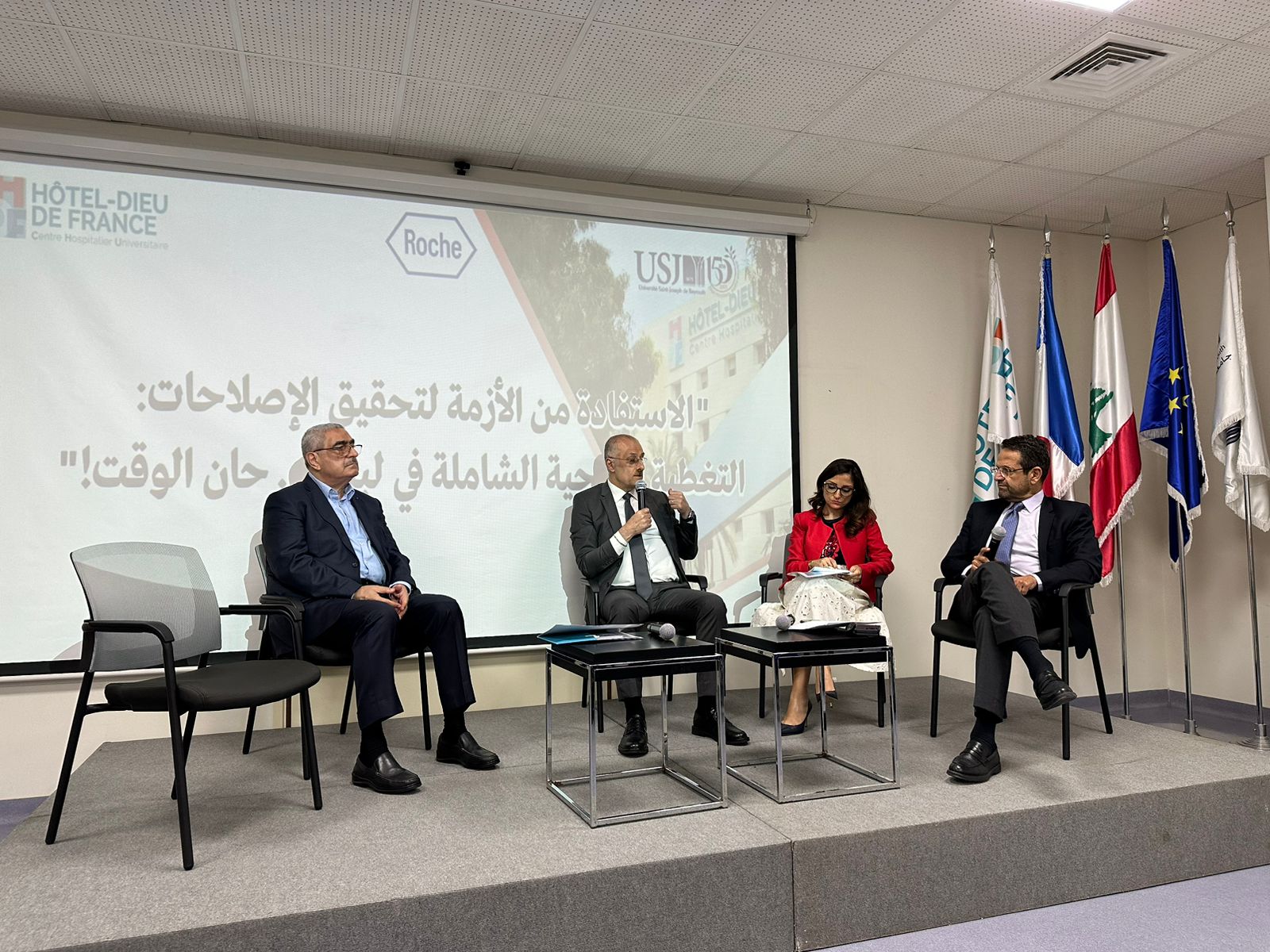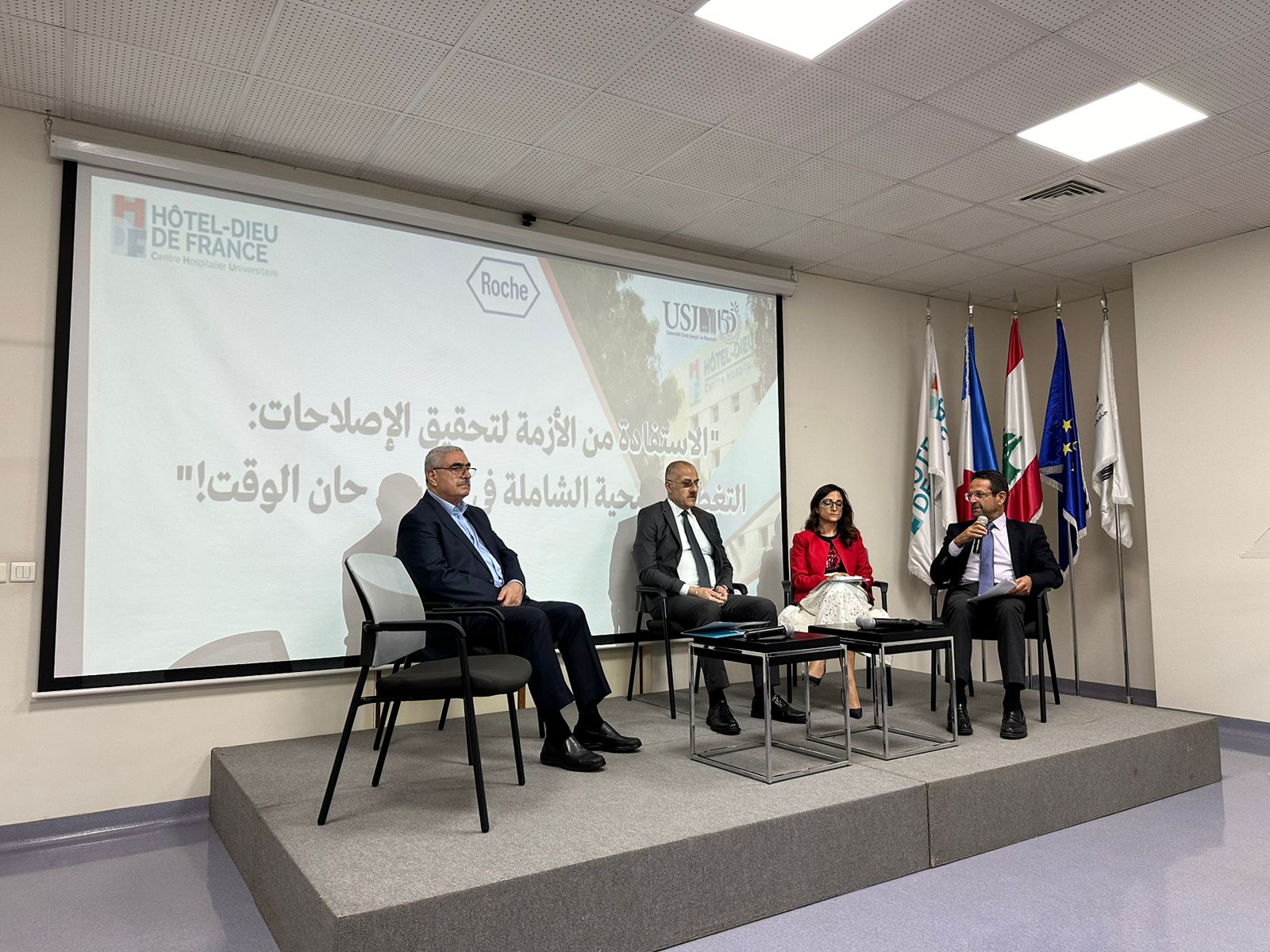
A round table was organized by Hôtel-Dieu de France in collaboration with Roche under the theme “Taking advantage of the crisis to achieve reforms: universal health coverage in Lebanon... The time has come!
The aim was to enable an exchange of visions and ideas on a new bill that the parliamentary health committee is preparing to achieve universal health coverage in Lebanon. Various aspects of this bill were discussed by different practitioners and professionals in the field.
Among the participants were Dr Bilal Abdallah, Chairman of the Health Commission, Dr Walid Ammar, former Director General of the Ministry of Health, and Ms Carole Haddad, Regional Director of ROCHE. The conference was moderated by Dr. Sami Nader, Director of the Institute of Political Science at Saint Joseph University, and Ms. Corine Aad, Strategic Mission Officer at HDF.
Conference participants agreed that Lebanon has great potential to achieve universal health coverage. However, its realization will depend on political decisions, given that the issue of health concerns all Lebanese, as well as parties and leaders from all regions and communities.
Against this backdrop, the conference began with a word of welcome from the Director General of the Réseau hospitalier de l'Hôtel-Dieu de France, Mr. Nassib Nasr, who declared: “We are here to examine together the progress in the legislation prepared by the parliamentary health committee. The current situation in Lebanon is difficult, and could become even more so in view of what is happening in Gaza and southern Lebanon. Hôtel-Dieu de France organized this dialogue meeting, because its concern remains the patient in the context of the difficult situations experienced by the Lebanese. The expression “a patient dies on the hospital doorstep” saddens us all. That's why Université Saint-Joseph and Hôtel-Dieu de France are doing their utmost to overcome all the difficulties facing our community. The patient's interest is our priority, which is why we make agreements and hold meetings.”
Later, the former Director General of the Ministry of Health, Dr Walid Ammar, emphasized that the correct definition of universal healthcare is to include all people in basic health services, on which the parties concerned must agree. Health services must be studied objectively and must not be influenced by clientelism, i.e. when signing consent for a hospital or pharmaceutical health service. Lebanon has all the means to provide universal healthcare, but there are obstacles, the most important being the political one, which prevents the project from seeing the light of day. But I have the feeling,” said Ammar, ”that the crisis in Lebanon has brought everyone to agree on the issue of healthcare, which must be the subject of a concerted effort by all to adopt it. Ammar also mentioned that he has proposed a bill on this subject and hopes it will be adopted in the near future.
MP Dr. Bilal Abdallah, Chairman of the Health Commission in the Chamber of Deputies, solemnly proclaimed: “The project we are working on for universal health coverage is the result of experience and the accumulation of all previous attempts, taking into account our political situation without going into details, as well as our economic situation. We also take into account the state of our healthcare system as a whole, communicating with the relevant unions, hospitals and doctors, and monitoring private insurance as it attempts to compensate for the decline in benefits from the Social Security Fund, bearing in mind that health is a right to preserve human dignity and is an integral part of our work as legislators. The proposed law on the subject of health is today a draft text that we are discussing in the sub-committee, and we have gone through a large part of our study. Our proposal is based on a health card for all, far from the slogans that have never been applied until now. We are in a position to face up to all the obstacles and complications, and we are realistic, without wanting to enter into grand slogans that are unattainable. Let people know that social security has not come to an end as some people think.
In conclusion, while managing the dialogue, the Dean of the Faculty of Political Science at Saint Joseph University, Dr Sami Nader, said that universal health coverage is not something we are trying to impose, as is the case in many countries, but that we are trying to achieve it gradually. We don't know if the gradual approach on this subject is due to constraints that we can't face and overcome.
Finally, ROCHE Regional Director Carole Hassoun, in her speech, said that the opportunity is now there to provide better hospital care services. Lebanon's crisis has taught us a lot about how to finance the hospital and healthcare situation. At ROCHE, we have put all our resources into helping to carry out studies. We believe that the law to be promulgated must be based on correct studies and on correct, realistic figures, so that the law is applicable and sustainable. That's why we've decided to support these studies, not conduct them.
